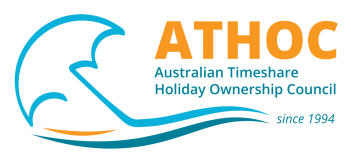How does timeshare work in Australia?
Timeshare ownership has evolved over the years. You can now select products that are either fixed weeks at a specific location (resort or holiday unit), or a flexible product based on points. Depending on your product type, you can use your points, or “holiday currency,” to book holidays at different resorts and locations throughout Australia and the world. Owning a timeshare allows you to choose when and where you vacation.
Every timeshare agreement is different, and you need to select a product that works best for you and your family. Options include:
Some properties are divided into one to two-week periods and split between all of the owners. Essentially, buying you the right to holiday one to two weeks each year at a specific resort or holiday unit.
Some timeshares offer flexible weeks, which allows a buyer to choose their weeks without set dates, but within a certain season. The owner is then able to reserve their week each year during this period (subject to availability).
Other timeshares offer options for points-based memberships, which can be put towards timeshare accommodation, as well as biennial usage to suit your needs.
Australian timeshare Clubs are regulated as a managed investment scheme by the Australian Securities and Investment Commission (ASIC). ASIC ensures Owners/Members are being looked after by the Responsible Entity and the Developer.
Australia’s timeshare industry body is us. We’re the Australian Timeshare Holiday Ownership Council (ATHOC), and it’s our mission to make sure Australian timeshare Clubs are run ethically and honestly, to the benefit of both Developers and Owners/ Members. You can learn more about what we do here.
It is important to acknowledge that while timeshare is legally classed as an investment product, it is a lifestyle investment in holidays for the future, and is not intended to provide financial gain. You should not expect to make money on your timeshare ownership.

Timeshare Terminology
Timeshare uses lots of complex language, which can be confusing if you’re not sure what it all means. Here’s a quick guide to the most common timeshare terms.
- Timeshare programmes are managed investment schemes often known as Clubs.
- Someone who has a beneficial interest in the Club’s net assets is an Owner or a Member. That interest is referred to as an Ownership or a Membership.
- Clubs are operated by a Responsible Entity, which looks after the Club and the Owners/Members’ interests.
- Marketing, administrative functions and acquisition of new timeshare properties are generally the duties of the Developer. The Developer is normally the company who created the Club.
- Most new Australian timeshare Clubs use Points, which can be used to redeem holidays at different Club properties.
- A cooling-off period is a set amount of time during which new timeshare owners can cancel their Ownership/Membership and receive a full refund. The cooling-off period in Australia is 7 days for timeshare Clubs who are ATHOC members and 14 days for Clubs who are non-members.
- Vacation Ownership and Holiday Ownership are alternate terms often used to describe timeshare.
How do I buy timeshare?
If you’ve reached this point and you think that timeshare sounds like a good holiday option for you, it’s time to start looking seriously at buying.
The first stage of purchasing timeshare is attending a sales presentation. You’ll typically be shown how the Club works, the benefits of joining and success stories from existing Owners/Members. There’s nothing here that you can’t learn by reading the Club’s PDS, but attending is a great way to have an experienced staff member answer queries about your specific situation.
Some timeshare Clubs also offer test packages, which let you stay at one of that Club’s resorts at a heavily discounted rate for a couple of nights. In return, you’ll need to attend a sales presentation, although you’re not obligated to buy or sign up to anything. These ‘mini holidays’ are perfect for getting a taste of timeshare without any risk at all.
If you like what you’ve heard at the sales presentation, you can express your interest to the attending staff members, and they’ll start guiding you through the process of purchasing your Ownership/Membership.
Alternatively, you can contact individual timeshare resorts to discuss Ownership/Membership opportunities directly with them.
It’s important to always remember that purchasing timeshare shouldn’t be an off-the-cuff decision. Most timeshare Clubs have long lifespans, so you need to think about whether Ownership/Membership suits your lifestyle before committing.

How do I sell timeshare?
Most of us buy our timeshare so we can enjoy decades of incredible getaways with our families, but circumstances can change over time. Health complications, changes holidaying habits or unexpected financial situations might mean selling our Ownerships/Memberships becomes a sad necessity.
Unfortunately, selling timeshare isn’t as easy as buying it. When you first purchase your Ownership/Membership, ATHOC-member Clubs have a cooling-off period of 7 days, during which you can cancel and receive a full refund; once that period has passed, you can no longer cancel, meaning your only option is to transfer it to another person. Non-member Clubs have a cooling-off period of 14 days.
Many Owners/Members find that the easiest way to get rid of their timeshare is to simply transfer it to a family member or friend. That individual will then become the Owner/Member, and will assume responsibility for paying maintenance fees and all other costs.
If you don’t have anyone close to you willing to take over your timeshare (or you’d just like to get some of your money back), it’s time to think about selling it. There are three ways to do this:
- Through a licensed reseller
- Through a private sale
Before you decide to sell, it’s important to realise that, unlike property or stock, timeshare is not designed to provide financial return. It’s a lifestyle product that helps Owners/Members enjoy incredible holidays, and you won’t get your money back if you sell. We talked earlier about how Owners/Members have a beneficial interest in the Club’s assets, but this interest is only realised when the Club dissolves.


















